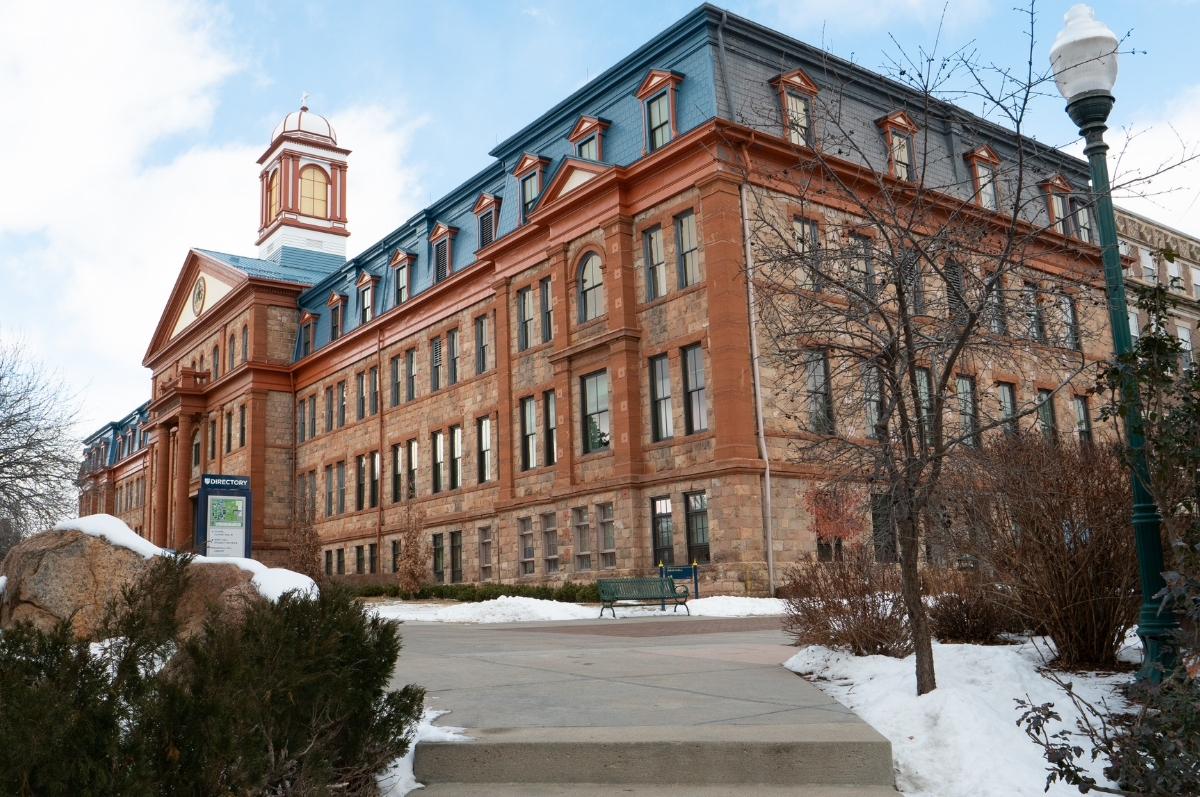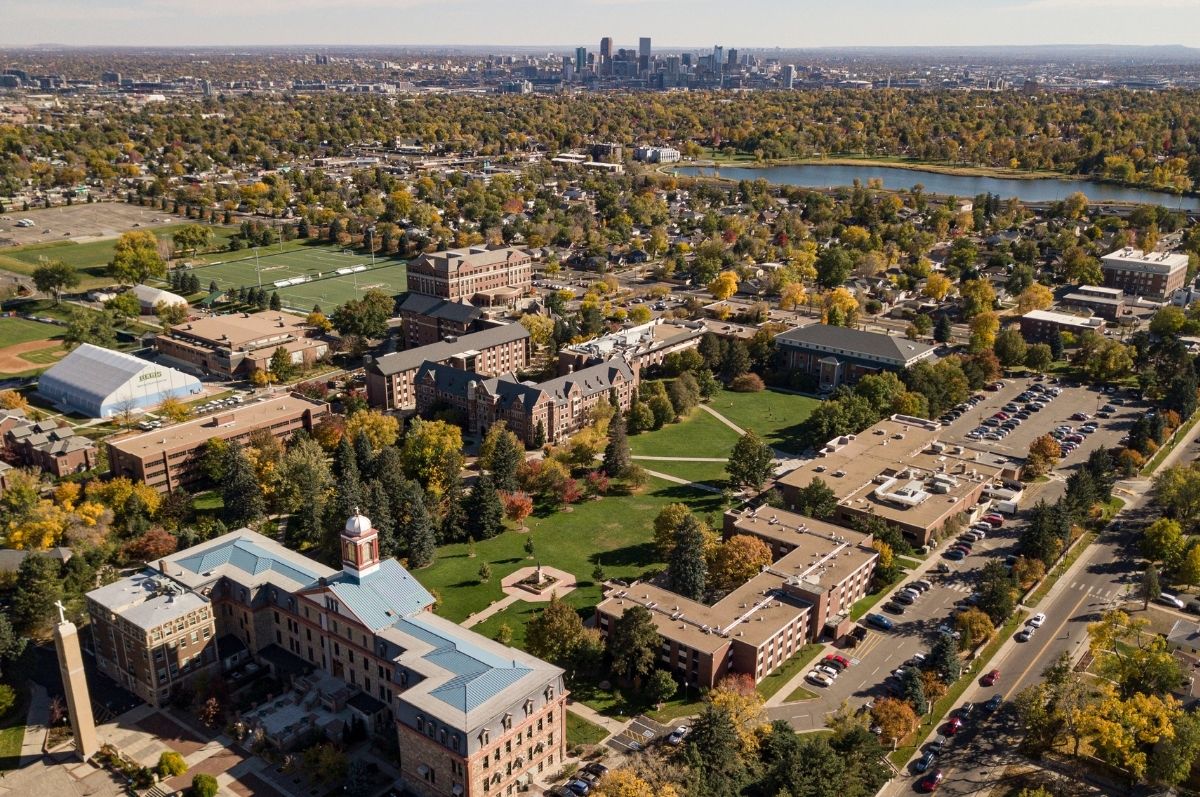Jesuit Panel Explores Catholic Unity Amid Church Divisions
Three Jesuit priests gathered at Regis University on Oct. 20 to address a pressing question facing the Catholic Church: Can diverse perspectives coexist within an increasingly polarized institution?
The panel discussion, titled "The Pew is Big Enough for All of Us," featured Rev. Sam Sawyer, S.J., president and editor in chief of America magazine, and Rev. Kevin Dyer, S.J., national chaplain and vice president of collegiate outreach for the Fellowship of Catholic University Students (FOCUS), in conversation with moderator Rev. D. Scott Hendrickson, S.J., Regis University's interim president.
"We have become so sorted," Sawyer said, describing how Catholics increasingly cluster in like-minded communities. "We tend to mostly be with people who are thinking the same way we're thinking about some of the deep questions in the church."
The evening began with a reading of Gerard Manley Hopkins' poem "Pied Beauty," setting the tone for a discussion about embracing diversity within church unity.
Bridging the Divide
Both organizations represented at the panel face stereotypes. America magazine is often labeled as the "liberal Catholic magazine," while FOCUS is perceived as conservative. But both priests pushed back against such simplistic categorizations.
"At the end of the day, we're all on the same side," Dyer said, noting that FOCUS works with chaplains across the theological spectrum. "The other side is the devil."
Sawyer acknowledged that America's mission, analyzing political and social reality through the lens of Catholic social teaching, sometimes frustrates readers across generations. But he emphasized the publication's commitment to honest reporting, even when it reveals church struggles.
"One of the ways I'm called to love the church is precisely by being honest about the struggles in the church," Sawyer said, referencing America's coverage of clergy abuse scandals.
Reaching Young Adults
Despite challenges, both priests reported encouraging signs among young Catholics. Dyer said FOCUS experienced its two largest years of growth recently, with OCIA programs seeing unprecedented interest.
"Campus ministers and chaplains are talking about people just showing up, saying, 'I've been thinking about it. I want to be Catholic. Is this where I'm supposed to go?'" Dyer said.
However, both acknowledged that the internet poses complications. Angry voices can have outsized digital footprints, making the church appear more divided than it is.
"It's easy for very angry and small elements of the church to have an outsized digital footprint," Sawyer said. "The remedy for that is interpersonal, real interpersonal relationship."
FOCUS's methodology emphasizes small-group relationships and incarnational ministry, an approach Dyer called "contrary to the spirit of the age" but deeply valued by young people seeking meaningful connection.
Learning from Pope Francis
The discussion touched on lessons from the recently concluded papacy of Pope Francis, who presented the church as a "field hospital" welcoming all.
Sawyer rejected the notion that Francis was "playing some kind of complicated 3D chess with the church," instead describing him as operating like "a Jesuit spiritual director for the whole church" — trusting that encounter with God would guide the faithful.
Early impressions of Pope Leo XIV suggest a "pope of first principles," according to Dyer, who emphasized seeking clarity in fundamental teachings.
The Art of Conversation
When asked how to navigate theological disagreements with friends, both priests emphasized prayer over argument.
"Don't try to argue out the theology," Sawyer advised. "If you can find a church to go to Mass together, if you can find some kind of prayer that you're willing to pray together, worship together."
Dyer stressed the importance of "sympathetic listening" before engaging substantive debates, noting that within FOCUS, "it is more important to win hearts than arguments."
Both priests acknowledged that young Catholics today must actively choose their faith in ways previous generations did not.
"No one is Christian by default anymore," Sawyer said, quoting philosopher Charles Taylor. "Anyone who's still going to bother being Catholic has had to make a choice about it somehow."
The event concluded with a moment of silence and a reminder of what Hopkins called the "pied beauty" of the church, its diversity of perspectives, prayer styles and approaches to understanding God.
"We can't afford to be wounded by friendly fire in the church, because the stakes are so high," Dyer said. "It's too bad when we become an obstacle" to those seeking faith.



